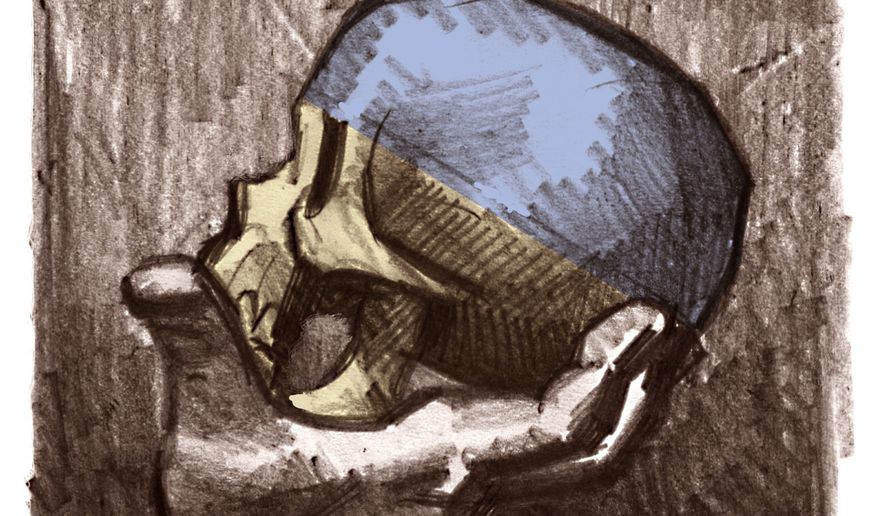OPINION:
There was once a breakaway province, one that had a shared history and language with its mother country, but one that decided it was ultimately time to chart its own course in the world.
The mother country, understandably, was reluctant to let her possessions go without a fight, and so invaded the breakaway province in an effort to bring it to heel.
Of course, the breakaway province we are talking about is Ukraine. Or we could be talking about the United States and their break from Great Britain. Or, if you like, we could be talking about the Confederate States of America, which were, of course, invaded by those same United States.
In each instance, beliefs about the legitimacy and nature of the break and subsequent invasion are colored partially by facts and partially by underlying sentiments towards the parties involved.
I mention this because friends of mine recently noted that Americans seem less than enthusiastic about the extent of American involvement in the war in Ukraine than my friends think they should be. The foundation of that particular sentiment — expressed in this instance by those whose frame of reference is the Cold War — was that Russia has always been and will always be an enemy of the United States.
That’s a defensible, although incorrect, position. As recently as our last military victory, Russia was our ally. More importantly, misguided sentiments and nostalgia cannot and should not be the basis for foreign policy decisions.
There are certain truths in the current situation that deserve attention. Perhaps the most important is that the Europeans themselves have decidedly mixed attitudes towards the war. While they rhetorically support Ukraine, the simple reality is that they are funding — through their continued purchase of Russian natural gas — Russia.
The Germans, especially, have made it clear that their manufacturing and their economic stability rely on affordable Russian natural gas. It is no accident that neither side in the war has taken steps to destroy the pipelines that move Russian natural gas westward into the continent. Everyone is fully aware of how essential natural gas and those pipelines are and will be to Europe.
Consequently, it is no surprise that the United States has given more to Ukraine than all of the EU nations combined. Despite the fact that we have no treaty or other legal or moral obligations to Ukraine, we have a black and white view of this conflict that is not shared by most of our European allies.
The Europeans also have clarity about how this conflict ends. Ukraine will not be able to “conquer” Russia, nor will Russia be able to conquer Ukraine. At least one of the leaders involved — the one with nuclear weapons — faces likely assassination in the event of his failure. All of that suggests that a negotiated peace is in everyone’s very near future. It is time for Team Biden to get on with it.
A few days ago, the leaders of France and Germany demurred when asked by Ukraine to provide more weaponry, but they did open the door to membership in the EU. They know that the war will eventually wind down and Ukraine will need to recover. They want to make money off of it and preserve their interests, especially with respect to the transit of Russian natural gas through Ukraine.
When that negotiated peace happens, and when it includes the inevitable territorial concessions, what will we conclude? Pretty much the same thing we can conclude about all the wars in which we have been involved since 1945 — if we are not willing to kill pretty much everyone on the other side, victory is not likely. Half measures are unequal to the challenges of war.
The other thing we can conclude is that NATO is a shell; it is chimerical. Originally designed to protect Germany from Russia, it now only protects the Europeans from having to provide for their own defense. Of course, Sweden and Finland want to join NATO; it’s a great deal for them. The United States and its citizens protect them in the event Russia invades, and they agree to protect us in the event Canadian hordes surge across our border.
We are overdue for a hard assessment of our military commitments to Europe and for an unblinking examination of our sentimentality — both positive and negative — about various countries on the continent. Hopefully, the experience in Ukraine will accelerate that needed assessment.
• Michael McKenna, a columnist for The Washington Times, is the president of MWR Strategies. He was most recently a deputy assistant to the president and deputy director of the Office of Legislative Affairs at the White House.




Please read our comment policy before commenting.